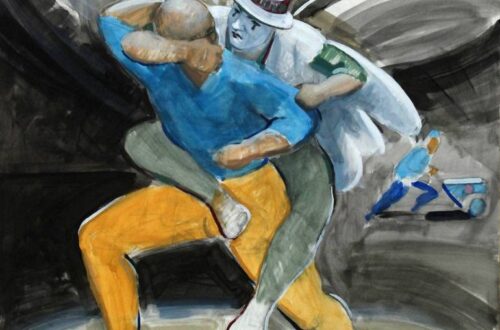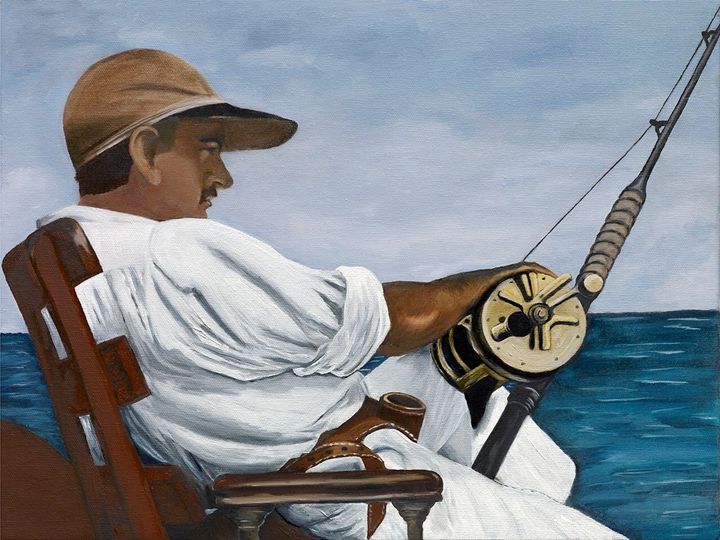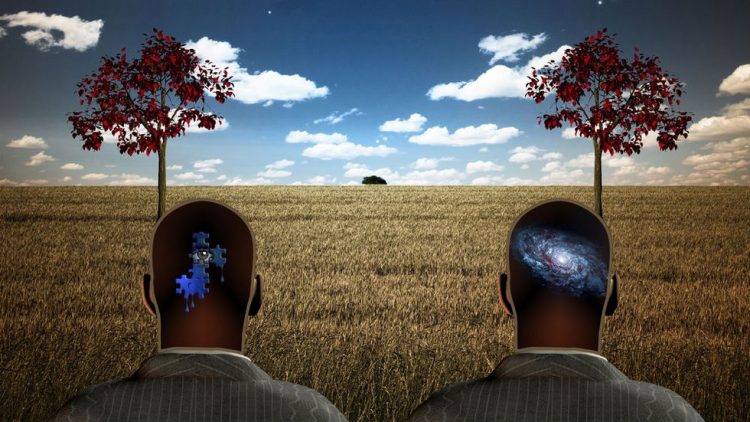-
Colossians 4
Here we are at the end of one of the several letters Paul has written from his two year imprisonment in Rome – Colossians, Ephesians, Philippians, Titus and Philemon. As we’ve said before, prison produces different effects in people. For some, they give themselves up to bitterness and resentment. For others, their lives are permanently dulled and slowly destroyed. For some, however, it produces greatness. Victor Frankl wrote of his confinement in the German death camp during WWII: The way in which a man accepts his fate and all the suffering it entails, the way in which he takes up his cross, gives him ample opportunity—even under the most difficult…
-
The One That Got Away
For years I have been a fan of those able to take concepts from different periods of history, various disciplines, and skills to help people translate all of that into ideas that can be applied to their own circumstances. Too often we think information needs to be taught in the specific dialect of the audience. Lawyers only learn from lawyers; educators from professors, ministers from theologians. A relative few have mastered the art of learning from everyone because they have an internal translator that makes virtually everything they read and hear applicable to their situation. They learn from everyone. I forget how rare that is and was reminded this week…
-
Colossians 3:18-21
It’s remarkable to me that Paul can move so quickly from arguing against the heresy of Gnosticism and how Christ is the image of the invisible God, the firstborn over all creation to the most practical human concerns and relationships. He is not a scholar in the ivory tower. “For by him all things were created: things in heaven and on earth, visible and invisible, whether thrones or powers or rulers or authorities; all things were created by him and for him. He is before all things and in him all things hold together..For God was pleased to have all his fullness dwell in him, and through him to reconcile…
-
Soft on Sin
What the heck was Jonah’s problem with Nineveh? The same problem as the older brother in the parable of the prodigal son. The same problem as Job and Jeremiah and David. In fact, the same problem all of us have. How can God be inconsistent? How can he be soft toward the rebellious and so strict with those of us who try so hard to do what is right? We need Psalm 37 to be true. We need to know that in the end the wicked will get their due and we will get ours. We need to know God does not have a double standard and that he is…
-
Colossians 3:1-17
Doesn’t it seem a bit ironic that after telling them to avoid people who have lists of rules to obey he would then create a list of rules of his own for us to follow? Paul was a teacher and teachers often depend on lists – especially lists that people can easily memorize and use as guides for their behavior. Of course, the shorter the better but sometimes Paul had fairly lengthy lists that we often had to recite in Sunday School. There are negative lists: Romans 1: They have become filled with every kind of wickedness, evil, greed and depravity. They are full of envy, murder, strife, deceit and malice.…
-
Stop the Steal
Rebellions do not happen overnight. After years, there is always a tipping point in either an event or a moment that precipitates them. We talk about the beginnings of the American Revolution and we know it was not simply the Boston Tea Party or the Boston Massacre, but the years of resentment over the taxes Britain imposed to maintain their troops after the French-Indian War and to increase revenue for a Parliament strapped for cash by an exploding national debt. There was a twelve-year buildup to the American Revolution. It is true for David’s son, Absalom’s rebellion as well. Look at the numbers: After the rape of his sister Tamar…
-
Colossians 1:24-2:20
The earliest Church may have stayed pure and all of one mind sharing everything with each other for a few days or weeks but it soon faced the realities of imperfect human nature. Yes, they were all believers and what would later be called Christians but the perfect harmony could not last for long. “They devoted themselves to the apostles’ teaching and to the fellowship, to the breaking of bread and to prayer. Everyone was filled with awe, and many wonders and miraculous signs were done by the apostles. All the believers were together and had everything in common. Selling their possessions and goods, they gave to anyone who had…
-
Same Kind of Different
In that same interview mentioned in the blog last week the question was asked, “What is the state of what some of us call Big Philanthropy in America.” Big is usually relative, isn’t it? Not only that but bigness always faces challenges that are new. For generations in this country there were relatively few big churches. Even now, the average church size is around 100 attending. When we began Leadership Network in 1985 to focus on the growing phenomenon of large churches we could find only about 300 churches with a weekly attendance of 1,000 or more and today there are likely over 3,000 megachurches. While the issues of the…
-
Colossians 1:1-20
This morning we are beginning our six weeks in the book of Colossians. It is worth noticing that the same author could have two such different perspectives of Christ and both of them are correct. They are not in conflict but two sides of the same coin. In the same way that the writers of the four Gospels have different accounts, Paul has a Philippian picture of Jesus and a Colossian picture. It was Ray Bakke, an urban sociologist, who first pointed this out to me. In his book “A Theology As Big As The City” he describes splitting a class into two parts. One part reads only the letter…
-
George and Jesus
A few weeks ago I did an interview and while much of it was on philanthropy the questions ranged across a number of topics. This first question was a good one. Does religion still have a place in what some used to call “the public square”? Yes, of course. However, it will be (and should be) what we have long referred to as “civil religion” and not a particular brand of religion. It has always been a combination of commonly held beliefs, symbols and rituals that have served as a national religion with its own sacred places and ceremonies. Truthfully, we want that. The question about religion and its influence…








